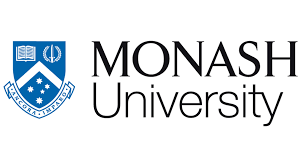Monash University: HIV home testing vital for early diagnosis
Home-based tests designed to rapidly detect the presence of HIV could prove vital in the early diagnosis of the virus among the most vulnerable cohort, new research published in the Medical Journal of Australia has revealed.
Alfred Health sexual health physician and Monash University researcher Associate Professor Jason Ong said early detection is often challenging for overseas-born men who have sex with men, however the self-tests, which are now readily available at pharmacies could soon change that.
“Overseas-born men who have sex with men are more likely to want to use these self-test kits, which is fantastic because our HIV epidemic in Australia has changed with more diagnoses among overseas-born MSM, who are often diagnosed too late,” he said.
“Making access to HIV testing easier for them could mean earlier diagnosis of the virus, which has many benefits for themselves and the community.”
Professor Ong said recent research conducted by the Kirby Institute, Alfred Health and Monash University overwhelmingly revealed people were able to use the self-test kits successfully.
“Previously there was a restriction that people could only purchase these kits online and needed to watch a video first, but we’ve been able to show that’s not necessary and the removal of that requirement has made the tests available over the counter.
“There are two types of tests – one which is blood based and another which is oral. Both showed similar accuracy; however, the consumers preferred the oral test, which is currently not available in Australia.
“Making this available alongside the blood-based test is likely to further increase uptake and enhance our efforts in early diagnosis.”
AFAO acting CEO Heath Paynter said the research showed the importance of expanding testing.
“AFAO thanks the Kirby Institute and Alfred Health for this research which highlights why it is critically important to expand the availability of self-testing, which we have called for in our Agenda 2025 strategy” Mr Paynter said.
“Increasing capacity to test for HIV is essential if we are to meet our goal of eliminating HIV transmission in Australia by 2025.”
“We will continue to work with our members to develop strategies that encourage easier and more frequent testing, particularly for priority populations.”
The coordinator of testing, prevention and populations for the World Health Organisation’s Global HIV, Hepatitis and STI programmes, Dr. Rachel Baggaley, welcomed the results of the research as a further step in eliminating HIV.
It’s so encouraging to see these results confirming that in Australia, as everywhere where self-tests are available, people are able to use them successfully.
“These are an empowering testing choice. Often people may want and benefit from regular HIV testing. By facilitating easier access we’re able to offer help earlier and stem possible transmission.

